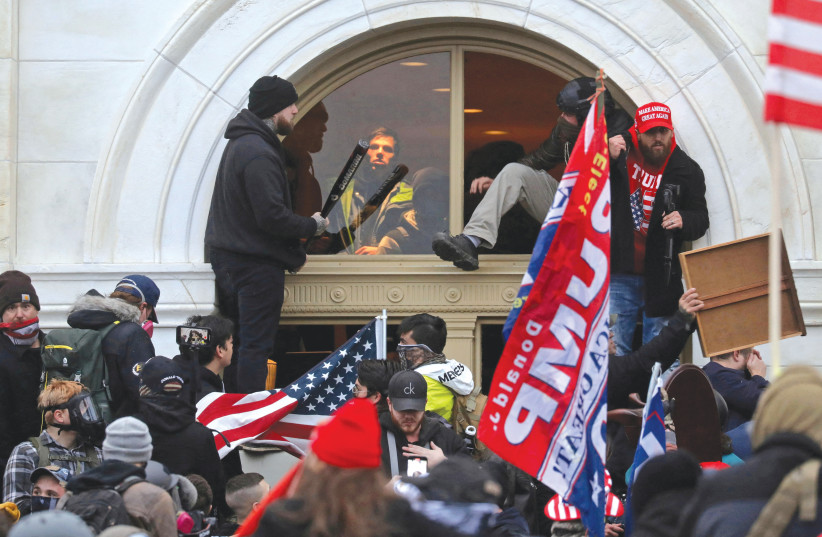A Colorado judge on Friday allowed Donald Trump to remain on the ballot in the state's election next year, but found that he "engaged in insurrection" by sparking the Jan. 6, 2021, attack on the US Capitol by his supporters.
The ruling from Judge Sarah Wallace, which is almost certain to be appealed, rejects a bid by a group of Colorado voters to disqualify Trump under a rarely used amendment to the U.S. Constitution that bars officials who have engaged in "insurrection" from holding federal office.
The judge found that, as president, Trump was not "an officer of the United States" that could be disqualified under the amendment.
The decision is a victory for Trump, who is fighting a series of similar challenges to his candidacy. A Trump spokesperson on Friday said the ruling was "another nail in the coffin of the un-American ballot challenges."
"The American voter has a Constitutional right to vote for the candidate of their choosing, with President Donald J. Trump leading by massive numbers," the spokesperson, Steven Cheung, said in a statement.

Still, the judge concluded Trump's "conduct and words were the factual cause of, and a substantial contributing factor" to the attack on the Capitol. She found that Trump "engaged in an insurrection on Jan. 6, 2021 through incitement."
Why the ruling is significant
The Colorado case, which was brought by a group of voters aided by the watchdog organization Citizens for Responsibility and Ethics in Washington, was the first to go to trial and was viewed as a test case for the wider disqualification effort.
CREW President Noah Bookbinder said the group would appeal the ruling.
"The court's decision affirms what our clients alleged in this lawsuit: that Donald Trump engaged in insurrection based on his role in January 6th," Bookbinder said in a statement.
Lawyers for the voters argued that Trump engaged in an insurrection by spreading false claims of widespread voter fraud following his defeat in the 2020 presidential election, summoning supporters to a rally in Washington and then urging them to march to the U.S. Capitol, where Congress was meeting to certify the election results.
Thousands of Trump supporters then stormed the Capitol, assaulting police and sending lawmakers running for their lives, in an unsuccessful bid to stop the certification.
Trump's lawyers claimed the former president had no relationship with the far-right extremist groups who played a major role in the attack and that his remarks before the riot were protected by his right to free speech.
The ruling applies only to the Republican presidential primary and general election in Colorado. The state is rated as safely Democratic by nonpartisan political forecasters for the general election.
The decision is the latest setback for the effort to disqualify Trump. Courts in Minnesota and Michigan have rejected efforts to keep him off the Republican primary ballot, but have not ruled on his eligibility for the November 2024 general election.
The Colorado decision can be appealed to the state's supreme court and eventually the U.S. Supreme Court, whose 6-3 conservative majority includes three Trump appointees.
